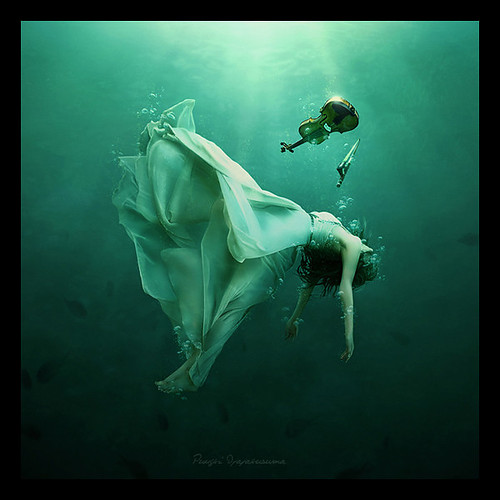When we are drowning in emotional crisis, when our heads and hearts are spinning out of control in a cyclone of pain or responsibility, we all have a tendency to strip our self-originating wisdom of its worth and look outside ourselves for answers.
It’s great to open the mind to outside perspectives, but what if we looked within a little more and on a deeper level? We must fiercely love our Self in times of emergency and show it some love but unfortunately this is usually the last thing we think of.
This sounds like obscure fancy white-light fluffy bunny bullsh*t, but it’s not. The mental technique needed involves a little cheating with objective self-observation. Achieving objectiveness on top of achieving self-observation is overwhelming for anyone who has never been introduced to such a thing before.
Here are a few tricks to find some hidden mental fountains of self-sufficient guidance.
Think of anyone you love—your best friend, partner, child, sister, parent, etc.— and imagine that you are in their place, and they are in yours, begging you for advice. What would you tell them to do? What would you tell them to ease their pain or stress? Allow the thoughts, now restructured in this manner, to flow and take note. This is the best advice from your higher intelligence. Listen and apply your own best advice.
In moments of deep uncertainty, pain, confusion, stress or high responsibility it’s easy to become insecure. We doubt ourselves and seek help from outside sources. We are so emotionally or mentally dismantled, that we subconsciously censor our own divine insights.
By visualizing and redirecting our thoughts to someone we love, our problem solving and decision making capacities begin to flow from an objective source of worth and love again, instead of our situational blindness, bias, fear or pain.
This shifts perspective from one that is beaten by our internal wretched ocean of emotion, to an outside perspective, and we able to see the whole ocean instead of just the storm, we are able to see more possibilities, options and solutions.
There is nothing wrong with asking others for advice—there’s always a chance that someone sees what we may not—but we must not censor, blur or bury our own hearts.
In addition to this exercise, we can find our ground by refocusing on one thing that is in our control: our reaction. It is often how we hold our bodies as the wave hits that is the problem, and not not being able to stop or control the wave. We cannot forcefully control our environment and everything feels like it is spinning out of control and slipping through our fingers.
In the midst of this cyclone, we can still control ourselves. By taking control of our internal environment, we can influence our external environment.
Focus not on what can’t be done but instead ask, “What can I do?” You might find yourself realizing that if you lift your feet up, you will move with the wave versus being smashed and tumbled like driftwood. Always ask yourself, “What are the ways I can react? How will my reaction affect possible outcomes?”
Lastly, routinely make a physical or mental list of what is most important to you. Is it a broader global cause? Is it your career? Hobby? Money? Is it your family? Is it your own health and happiness? Think about these things often and prioritize them. Think about yourself on your deathbed. Looking back, do you think you would prioritize your list the same?
These levels of importance will be like a lighthouse in the stormiest moments of decision making. More than one thing may be equally important, but they still must be prioritized so one gets more focus than the other—we can’t always have our cake and eat it too.
An example of how I applied these strategies would be when I was about 22 years old and making 40 to 45 thousand a year with no college degree. People would say that I was set, I was lucky, I tricked the system, and I should be happy. I could have made a lifelong endeavor of that company and career field. I felt deeply uneasy, stuck and scared because I was unhappy with how the job affected my personality and how much it kept me from my elderly father. I was terrified to leave the job because we needed the money. We were able to live comfortably thanks to my income and I did not want to take that away from either of us. I did not have a college education and I felt there was nothing else as a solid career that I could excel at other than what I already knew and had over a decade of experience in. My fear and self-doubt led me to struggle and stagnate for almost four years of my time in the field I hated.
One day I asked myself what was most important. My answer was the people I love, then my own health and happiness and money comes third. I asked myself what I would tell my best friend to do in my situation. A little voice in my mind whispered, “This place is crushing your spirit and making you ugly. It’s not worth the money. The people you care about deserve to have you there and have you healthy and happy. You can make it without this job. The best way to care for others is to take care for yourself first.”
So I left the company, went through a rocky time of financial struggles while finding another career and I don’t make as much as I used to, yet I am deeply confident and happy. Everything fell into place and my life is better than it has ever been, even with a little less.
Every situation and individual is unique. And since one knows your mind, heart and situation like you do, the answers will vary greatly. While it is healthy to be open-minded to the perspective of others, never silence the beat of your own inner drum.
When we dance to the beat of our own drum, we are dancing clearly and confidently, finding our deep divine place of contentment, aligned with the frequency of our true Self.
~
Relephant:
How to Deal with What You Feel: 4 Breakthrough Guidelines for Facing Difficult Times.
~
Author: Stephanie DaSaro
Editor: Katarina Tavčar
Photo: you me/Flickr











Read 2 comments and reply